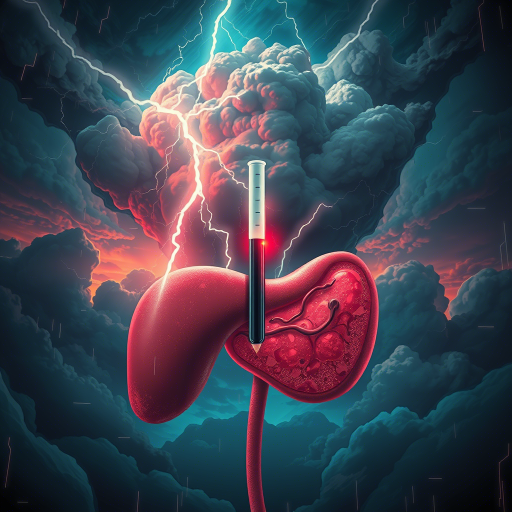Struggling with low blood sugar but not diabetic? What causes hypoglycemia without diabetes? Discover 15 causes of non-diabetic hypoglycemia—from rogue insulin spikes to adrenal meltdowns—and reclaim your energy today.

When Low Blood Sugar Isn’t Diabetes
Your hands shake, vision blurs, and a cold sweat hits—suddenly, you’re fighting to stay conscious. No, you’re not diabetic. Welcome to the perplexing world of non-diabetic hypoglycemia , where blood sugar plummets without warning, leaving you questioning your own body. It’s like your metabolism’s playing a cruel game of hide-and-seek, and you’re always “it.”
Top Causes of Non-Diabetic Hypoglycemia
Let’s cut through the confusion. While diabetics battle insulin imbalances daily, non-diabetics face a rogue’s gallery of triggers—from sneaky medications to hormonal betrayals.
1. Medications: The Unseen Sugar Assassins
Ever popped a pill for allergies or antibiotics and felt like you’d been hit by a hypoglycemic freight train? Certain drugs, like quinine (used for malaria) or excessive aspirin, can send blood sugar into freefall. Even that “harmless” weight-loss supplement might be spiking insulin behind your back.
2. Alcohol: The Double Agent in Your Drink
A nightcap might relax you, but ethanol’s a metabolic mischief-maker. It blocks glucose release from the liver, turning margaritas into a hypoglycemic trap—especially if you’re skipping meals. Think of it as your liver ghosting you when you need it most.
3. Insulinoma: The Tiny Tumor That Packs a Punch
Imagine a pea-sized tumor on your pancreas, cranking out insulin like a broken vending machine. These insulinomas cause fasting hypoglycemia, often dismissed as “just fatigue” until they’re caught via a 72-hour fast—the gold standard test.
4. When Stress Hormones Bail
Your adrenal glands are supposed to be your body’s crisis managers, pumping out cortisol to stabilize blood sugar. But in adrenal insufficiency (think Addison’s disease), they’re MIA—leaving you with crashes that feel like hitting a brick wall.
Hormones Gone Rogue
Hypoglycemia isn’t just about insulin—it’s a hormonal heist. When blood sugar drops, your body should deploy glucagon, epinephrine, and cortisol to stabilize it. But in non-diabetics, these safeguards fail like a broken alarm system.
The Aftermath of a Carb Binge
Ever eaten a donut and crashed harder than a sugar-rushed toddler? Reactive hypoglycemia strikes 2–4 hours post-meal, as your body overreacts to simple carbs. It’s like your pancreas throws a temper tantrum, flooding your system with insulin.
Diagnostic Deep Dive: How to Catch the Sugar Saboteur
Diagnosing non-diabetic hypoglycemia isn’t for the faint of heart. Doctors use the Whipple’s Triad : symptoms during a hypoglycemic episode, blood glucose under 70 mg/dL, and symptom relief after eating. But the real detective work? A 72-hour fast—because nothing says “fun” like starving in a hospital bed.
Survival Guide: Outsmarting the Crashes
- Diet Hacks: Ditch the soda spikes. Pair carbs with protein/fat (think almond butter on apple slices) to stabilize glucose.
- Medication Audit: Scrutinize every pill with your doc—some antibiotics and antipsychotics are covert glucose gremlins.
- Adrenal Support: Licorice root tea or stress-reduction techniques (yoga, anyone?) can coax your adrenals back online.
Final Rally: Take Control of Your Blood Sugar
Non-diabetic hypoglycemia is a puzzle—but you hold the pieces. Track your symptoms, demand the right tests, and don’t let dismissive doctors gaslight you. Your energy isn’t “all in your head.”
